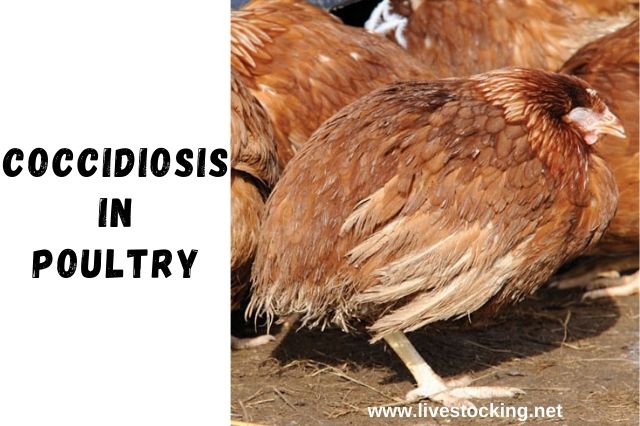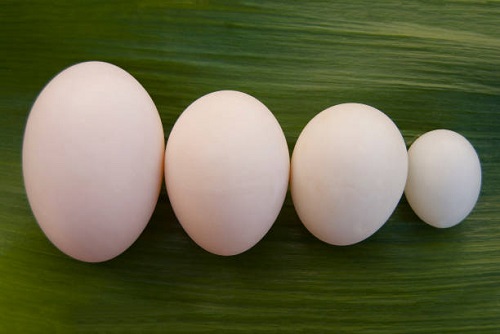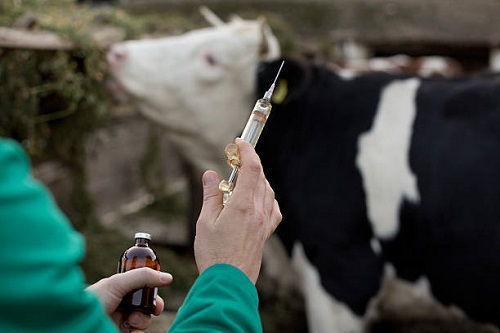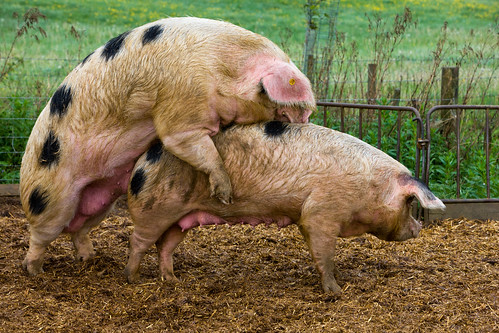What is Coccidiosis?
Coccidiosis or Cocci in poultry is an important protozoan disease that is capable of wiping out a large number of affected chickens overnight. Coccidiosis affecting poultry birds include Eimeria tenella, E. necatrix, E. maxima, E. mivati, E. mitis, E. brunette, etc.
It is easier or better to prevent than to cure it because a poultry farmer may not be aware that his birds have coccidiosis until it is very late. Unfortunately, he might have lost a good number of chickens. This is the reason why a poultry farmer needs to know what to look for and what is needed to be done.
Coccidiosis is a protozoan disease that infects the intestine of poultry birds like broilers, layers, turkeys and other animals. This disease can cause damage to the host bird within 4-7 days as the Eimeria parasite replicates and damage the intestinal mucosa of the host within this period.
This disease starts when poultry birds (broilers, layers or turkeys) ingest relatively many sporulated oocysts of the parasite. These oocysts are present in litter, contaminated feed, soil, dust and water. Furthermore, these oocysts can be transmitted by insects, clothing, pen materials or equipment or in the feces of infected birds. However, fresh oocysts are not harmful or effective unless it is sporulated, and this could happen when the environmental temperature is around 70°–90°F and with adequate oxygen and moisture within 24-48 hours.
Depending on certain environmental factors, sporulated oocysts may survive in the sporulated form for long periods and they are resistant to some disinfectants but could be destroyed by high temperatures or freezing.
If one or some of your birds is infected with cocci and on deep-litter, it means that the chances that the whole flock will be affected because they have access to the litter and the faeces excreted by those infected.
Signs and Symptoms of Coccidiosis
When birds are suffering from coccidiosis, the following are observed:
- Blood in droppings, blood-stained faeces or sticky white diarrhoea around the cloaca
- Drop in feed intake due to loss of appetite and this is followed by a rapid drop in body weight
- Ruffled feathers and dropped wings
- High mortality rate in a flock
- Reluctance to move and general weakness (fowl paralysis)
- Birds huddle together with closed eyes
- Pale wattles and combs
How to Treat or Control Coccidiosis
Birds that are raised on a battery-cage system have fewer coccidia infections because they have little or no access to litter or faecal droppings. Hence, it is recommended to raise birds in cages rather than on deep-litter. However, if the birds are on a deep-litter system, the litter should be changed regularly (once in two weeks) and avoid too much water spilling on the litter. When the litter is wet or smells ammonia, it should be evacuated and replaced to dry litter (wood shavings).
Anti-coccidial vaccines and drugs could also be used as they are very effective in controlling coccidiosis. Anti-coccidial drugs that can be used to treat coccidiosis include Prococ, Amprocox, Coxstop, Coccicare and Sulpha drugs. Continuous use of a low level of a coccidiostat through feed also helps.
Above all, maintaining a high level of hygiene and sanitation would greatly help in preventing coccidiosis in your flock.
For Further Reading:
- http://www.merckvetmanual.com/poultry/coccidiosis/overview-of-coccidiosis-in-poultry
- http://www.chickenvet.co.uk/health-and-common-diseases/coccidiosis/index.aspx
- http://www.thepoultrysite.com/publications/6/diseases-of-poultry/206/coccidiosis/




what quantity can be used in thier feed contineously as stated above. and how often do one repeat the oral treatment.
This is educative love it
Thank you Ibrahim!